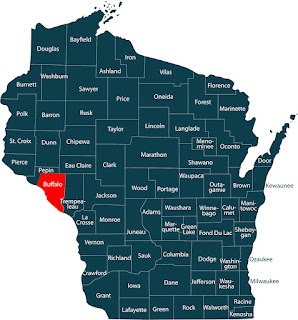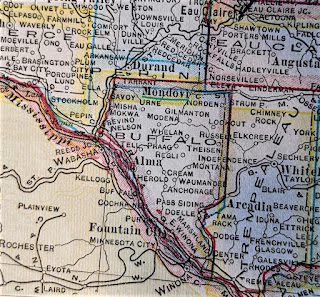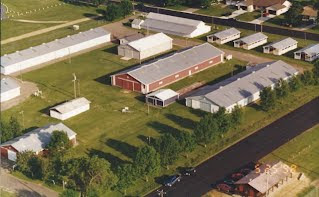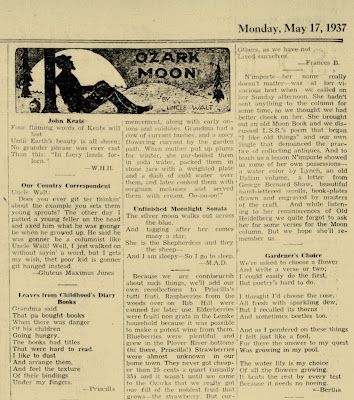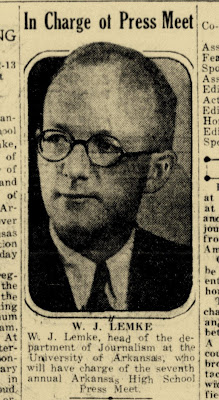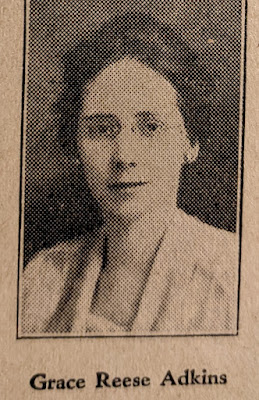In the decades before the Civil War, the few ethnic German immigrants who chose to live in Little Rock were unable to form social relationships like those they had enjoyed in their home countries.[1] The immigrants who spoke little or no English were isolated from the activities of native-born city residents and, because of their small numbers, they did not have – with minor exceptions – their own German-language clubs, associations, churches, or other groups, nor did they have their own spaces and events where they casually interacted with each other.[2] As a result, until they mastered English and adapted to the culture that surrounded them, these “small souls” had social lives that took place largely within families or a circle of German-speaking neighbors and friends.[3]
This situation
changed during the 1860s after the Civil War triggered population movements
that increased the city’s population from 3,727 at the start of the decade to
12,380 at its end.[4] Among the newcomers were ethnic
German immigrants whose numbers grew from 175 in 1860 to 494 in 1870.[5] By 1867, the count of ethnic Germans living in
Little Rock was large enough for them to set up their own secular and religious
organizations.[6]
The drive to
establish German-language clubs and associations in Little Rock came in large
part from immigrants who had settled there after the Union army occupied the
city in September 1863. Most of these
newcomers had moved to the city from other states, mainly in the East and
Midwest, to which they had originally emigrated.[7] They
quickly outnumbered the ethnic Germans who had lived in Little Rock at
the start of the war. By 1870, they comprised 138
of the 180 ethnic German families living in the city (about 77 percent) and 163
of the 173 single ethnic German residents (94 percent).[8]
Gun Store of A.E. Linzel
On average, the
newcomers were younger than the immigrants who had resided in Little Rock
before 1860, and they had different life experiences and expectations for their
futures. One expectation, stoked by living in larger U.S. cities with active
ethnic German enclaves, was that they would have social lives beyond the
boundaries of the English-speaking society, enjoying familiar activities such
as singing, shooting, dancing, and drinking with their fellow German speakers.
Toward that end, many of the newcomers led an effort to replicate the social
life in clubs and associations (the Vereinswesen) that was pervasive in the German
states from which most had emigrated.[9]
The city’s first
German-language association, created in late 1866 or early 1867, was the Men’s
Choir (Männerchor),
a singing group long popular in the German Confederation.[10] A
few months later, ethnic Germans opened a Turnverein, followed during
the next few years by marksmen clubs and the German-language lodges of two
secret societies, the United Ancient Order of Druids and the Independent
Order of Red Men.[11] Numerous additional secular
German-language clubs and associations would spring up in the years that
followed.[12]
While a few old-timers joined the newcomers in establishing secular clubs and associations for German speakers, others led an initiative to enable Lutherans, who comprised a majority of the city’s ethnic German population, to have their own Church. Several prominent German-speaking immigrants, most of them long-time residents, met in the home of Charles and Fredericka Reichardt Miller in Fall 1868 to plan the new church. On December 15, 1868, this group with a few additions adopted a constitution creating the German Evangelical Lutheran Church.[13] The new congregation quickly constructed a church building, dedicated in March 1870, and then erected a building for its German-language school.[14] After an immigration surge beginning in the late 1870s that swelled the number of German speaking Catholics in Little Rock, local church leaders built St. Edward Catholic Church, dedicated in 1885, to host German-language services and a German-language school.[15]
Among the German
speakers in Little Rock were Jews, whose numbers surged in the aftermath of the
Civil War. Unlike observant Lutherans and Catholics, Jews were not expected to
avoid secret societies or the Turnverein, and many – both old timers and recent
arrivals – were active in them even as they helped assemble the B’nai Israel
congregation (chartered in 1867) and build a synagogue (opened in 1872). Soon
after the congregation formed, several Jewish merchants started the Concordia
Association (1868) to hold social and cultural events, and they founded a local
chapter of the International Order of B’nai B’rith (1871), a secret society.[16] Although
these organizations were not exclusively for German speakers, more than
ninety percent of the early members of the synagogue and the Jewish clubs were
ethnic Germans.[17]
These Jewish
groups in which German was commonly spoken joined Little Rock’s new
German-language secular and Christian religion-based organizations as the core
of the active community of German speakers that emerged in the late 1860s.
Other elements of the community included a German language newspaper providing community
members with relevant news and the different spaces and events where German
speakers regularly came together.[18]
Among the spaces
where German speakers often encountered each other were the city’s many ethnic
German-owned businesses, including a disproportional share of Little Rock’s
grocery stores, dry goods stores, and liquor stores.[19]
Other important spaces for them were the City Garden, Papa
Geyer’s Beer Garden, and Jacobi’s Grove, where German speakers socialized while
enjoying family outings, and saloons owned by ethnic Germans where hard
drinkers shared shots. German speakers also assembled at beer gardens, the
Concordia Hall, and, after 1884, the Turner Hall for their own dances, dinners,
and balls, and they attended concerts, plays, and lectures at the latter two
venues.[20] Also, a few of them staged,
and many took part in, an annual Maifest celebration and an annual masquerade ball, both of which ethnic Germans
held in Little Rock well into the twentieth century. 
Little Rock Turnverein, 1892
The elements of
the community that brought German speakers together helped overcome deep divisions within the German speaking
population caused by differences in country of origin (see footnote 1),
religion, wealth, social status, education, political views, and other
characteristics.[21]
In spite of the many differences, Little Rock’s German
speakers were able to create their own “Little Germany,” in which ethnic
Germans, regardless of their English proficiency, could live comfortable lives
among people who shared their language and values. In their ethnic enclave,
they were no longer “small souls,” but a group that enjoyed their own culture
and customs, promoted their own values, and, when needed, protected their own
interests.
ENDNOTES
1. “Ethnic German immigrants” were first-generation
German-speakers who had similar cultural characteristics and values whether
born in one of the states of the German Confederation (before 1871), Germany
(after 1870), Austria, Switzerland, or German communities within Denmark
(Schleswig-Holstein), France (Alsace), Poland (Galicia), or elsewhere. When
asked their “country of birth” as part of the 1870 U.S. Census, the 589 ethnic
Germans living in Pulaski County named, among others, Prussia (227 persons),
Baden (76), Bavaria (42), Saxony (33), Hanover (31), Württemberg
(31), Austria (25), Switzerland (22), Bohemia (15), Poland (13) and Hesse (11).
2. The exceptions included the Little Rock City Garden, also later known as the Dutch Garden, opened by ethnic German immigrant Alexander George and his brothers in 1840 where guests could sit outside and enjoy various drinks, including beer brewed by the George brothers. Also, German speakers could attend German-language religious services conducted by Reverend William H. C. Yeager in the 1840s at the Christ Church (Episcopal). In addition, an ethnic German “Singer Bund,” formed at least briefly in the late 1850s. See “Little Rock City Garden,” Weekly Ark. Gazette, Apr. 23, 1840, p. 3; “Brewery,” Weekly Ark. Gazette, Feb. 3, 1841, p. 2; and “Ball at James’ Hall,” Ark. True Democrat, Feb. 2, 1861, p. 3. Also see Michael Dougan, Arkansas Odyssey, Rose Publishing Co, 1994, p. 137.
A few ethnic Germans who spoke good English and became successful businessmen joined the city’s leading citizens as members of English language secret societies. For example, William George, Francis Ditter, Henry Fisher, and Charles Krebs were pre-Civil War members of the United Ancient Order of Druids. "Tribute of Respect," Ark. True Democrat, Aug. 18, 1858, p 4.
3. According to an editorial in the Anzeiger des Westens, a newspaper published in St. Louis, "small souls” was what Americans called Germans who lived as isolated individuals rather than as part of an organized group. “Anzeiger des Westens, 22 October 1857, Germans and the Crisis,” in Steven Rowan (editor and translator), Germans for a Free Missouri: Translations from the St. Louis Radical Press, 1857-1862. Univ. of Missouri Press, 1983, p. 57.
4. During the Civil war, insecurity caused by guerilla operations in rural areas forced many farmers and their families to move to Little Rock. Also, freed slaves moved to the city in large numbers. After the war, the city’s economic prospects attracted new residents from other states, including former Union soldiers who had been stationed in Little Rock.
5. Using 1860 and
1870 U.S. Census data, I counted the number of ethnic Germans living in Little
Rock in each of those years. For counts of the German-born population of
Pulaski County from 1860 to 1890, see Shirley Schuette, Strangers to the Land:
The German Presence in Nineteenth-Century Arkansas, Master’s Thesis, University
of Arkansas at Little Rock, 2005, p. 35 and Johnathan
Wolfe, “Background on German Immigration,” Ark. Historical Quarterly, 25(4),
Winter 1966, p. 377.
6. Historian Carl Wittke observed, “Wherever Germans settled in sufficient numbers to support group activities, they introduced the social patterns of the fatherland, for like all immigrant groups, they did not shed lightly the customs of the Old World.” Carl Wittke, Refugees of Revolution, University of Pennsylvania Press, 1952, p. 280.
7. Using the household data in the 1870 U.S. Census, I identified each ethnic German family living in Little Rock that included a son or daughter who had been born in another state. I assumed that the birthplace of the oldest child was the family’s previous state of residence. My count of the previous states of residence was as follows: Tennessee 13, New York 13, Missouri, 11, Ohio 10, Illinois 4, Pennsylvania 3, Indiana 3, California 2, Louisiana 2, Alabama 1, Kentucky 1, and North Carolina 1. Only one ethnic German family with children had moved to Little Rock from a German state in the 1860s. Comparable data on previous states of residence are not available for ethnic German families without children or for single individuals who settled in Little Rock during the 1860s.
8. My analysis of 1860 and 1870 U.S. census data for Little Rock showed that forty-two (nearly two-thirds) of the sixty-five ethnic German families living in Little Rock in 1860 were still there in 1870.
9. According to Annette R. Hofmann, “In the German states, the Vereins movement began at the close of the 18th century and developed during the first decades of the 19th Century into a mass movement that permeated all strata of the population.” Annette R. Hofmann, The American Turner Movement: A History from its Beginning to 2000. Max Kade German American Center, Indiana University and Purdue University, 2010, p. 47. Wittke (1952, p, 280) noted that “in urban centers [of the United States], large and small, Germans nurtured social organizations of many kinds to perpetuate the life they had known at home.” The noun word “Verein” has multiple translations depending on the context of its use. It can refer to, among other things, a social club, association, society, or organization. I translate, as others have, Turnverein as the “Turner Society.”
10. The existence of the Männerchor was mentioned in local newspapers when it sponsored the city’s first German Maifest celebration. See “May Festival,” Ark. Gazette, May 19, 1867, p. 3 and “Festival,” Ark. Gazette, June 12, 1867, p 3. In the latter article, the author wrote, “The Maennerchor is an association of our German citizens, banded together for social purposes; and periodically they observe the customs of the fatherland, suggestive to the aged of the happy hours long since gone, and affording innocent amusement to their descendants.”
11. Untitled Item, Ark. Gazette, Dec. 16, 1868, p. 3; “Attention Sharpshooters,” Ark. Gazette, Dec. 12, 1872, p. 4; and “Our Schuetzen Gilde – 1875,” Ark. Democrat, Oct. 25, 1878, p. 4. Grove No. 5 of the United Ancient Order of Druids (UOAD) was founded on April 12, 1870. Although many of its members were ethnic Germans, German may not have been its main language. Aurora Grove No. 6 of the UOAD, formed in 1871 or 1872, was populated exclusively by German-speaking members. The Arkansas Stamm No. 162 of the Independent Order of Redmen first convened on October 15, 1871. A second lodge, Hermann Stamm No. 163, opened on Feb. 6, 1872. See the Little Rock, Arkansas, 1872 City Directory, p.18 (accessed on Ancestry.com). Also, “U.O.A.D.,” Ark. Gazette, Apr. 12, 1870, p. 4.
12. Among other German-language groups formed in the 1870s were the Germania Lodge of the Knights of Honor, another secret society, and the Casino Club, a group that sponsored frequent social events for its mostly Lutheran membership. “City and General Items” (Casino Club), Ark. Gazette, Nov. 22, 1876, p. 4 and “City and General Items” (Knights of Honor), Ark. Gazette, Feb. 24, 1878, p. 4.
13. Del Schmand, Heritage of the First Lutheran Church. Horton Brothers Printing Co., 1988, pp. 9-11 and Goodspeed Biographical and Historical Memoirs of Central Arkansas, 1889, p. 411 (accessed on Google Books). Schmand, citing Church records, listed 22 “charter members” of the Lutheran Church. Of those, 14 were living in Pulaski County – most in Little Rock -- before 1860 and another was living in Benton. Seven lived outside the state in 1860.
14. “A Model Church,” Ark.
Gazette, Apr. 7, 1888, p. 5; “German Lutherans,” Ark. Gazette, Sept.
9. 1888, p. 3; “Corner-Stone is to be Laid Today,” Ark. Gazette, July 7,
1907, p. 11; “New Lutheran School,” Ark. Gazette, Sept. 15, 1907, p. 4;
and “Lutheran Church is 55 Years Old,” Ark. Gazette,
Dec. 15, 1923, p. 17.
15. “St. Edward Catholic Church,” Encyclopedia of Arkansas, accessed at https://encyclopediaofarkansas.net/entries/st-edward-catholic-church-13511/
16. The history of Jews in Little Rock and the rest of Arkansas is covered comprehensively in Carolyn G. LeMaster, A Corner of the Tapestry, University of Arkansas Press, 1994. Also see, “I.O.B.B.,” Ark. Gazette, May 30, 1871, p. 4; “The New Synagogue,” Ark. Gazette, Sept. 28, 1872, p. 4; and the listing of “benevolent and secret societies” in the 1872 Little Rock City Directory. Although the Concordia Association board and its members were Jewish, the Concordia Hall was a popular venue for events sponsored not only by the Association but also by diverse non-Jewish organizations.
17. According to LeMaster (1994, p. 22), over ninety-nine percent of the Jews who settled in Arkansas before and during the 1850s were from German states.
18. A weekly German-language newspaper was published in Little Rock starting on June 1, 1866, with an unknown final date; from Oct. 1869 to January 1871; and from Oct. 1874 to March 1876, with a suspension from January to March 1875. The first two newspapers were named the Arkansas Staats Zeitung and the third was the Arkansas Freie Presse. In October 1877, another version of the Arkansas Staats Zeitung began publication. It continued until 1917. An additional weekly German-language paper, the Arkansas Echo, began publication in 1891 and continued until 1932. See "The Press Gang," Ark. Gazette, June 10, 1876, p. 2 and Kathleen Condray, Das Arkansas Echo. The University of Arkansas Press, 2020.
20. Each of the German-language secret society lodges had its own meeting room. Also, of course, the German Evangelical Lutheran church had its own meeting space for the activities of its members as did St. Edward Catholic Church after it was constructed in 1885.
21. Because of their differences, ethnic Germans often disagreed with and sometimes disliked each other. Nevertheless, in the decade or so following the Civil War, increasing numbers of Little Rock’s ethnic Germans came to view themselves as “Germans” who shared a common heritage. Eleanor Turk observed, “The process of trans-Atlantic migration … changed Prussians, Hessians, Bavarians, and Palatines from Central Europeans into “Germans” as well as “Americans.” Eleanor L. Turk, "Germans in Kansas," Kansas History, 28, Spring 2005, p. 48.

.png)
